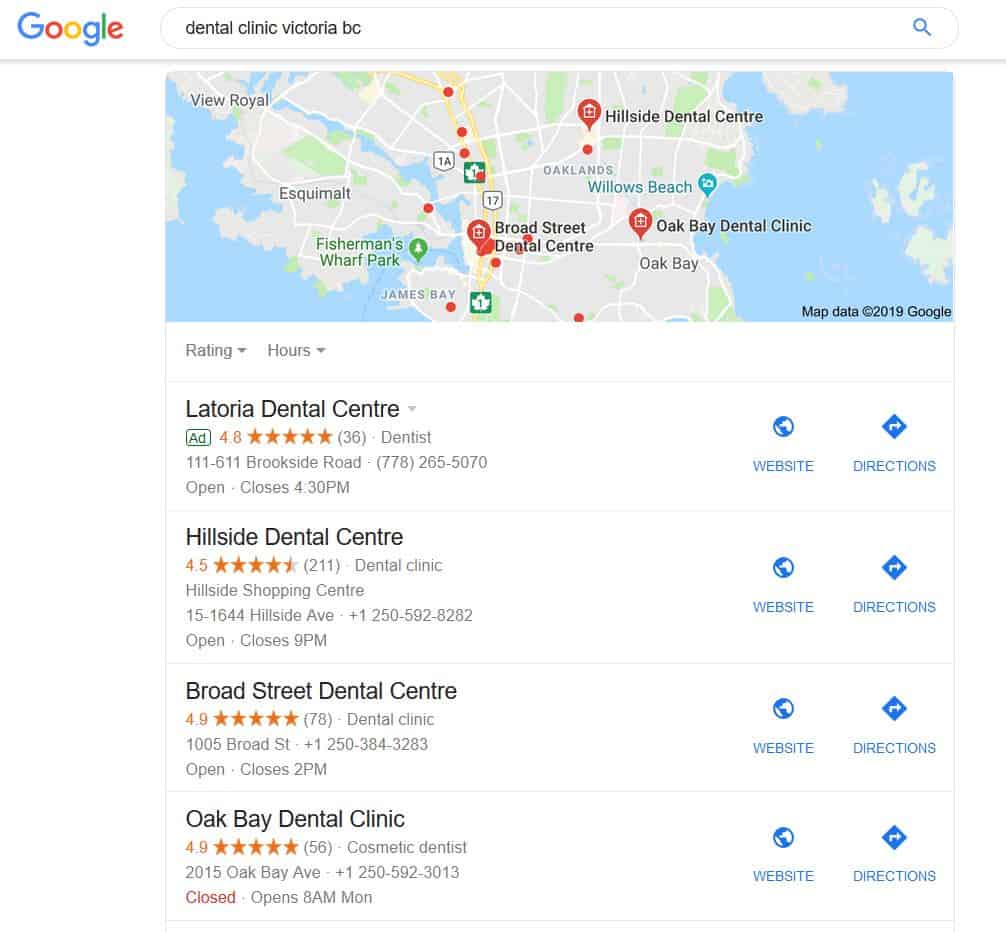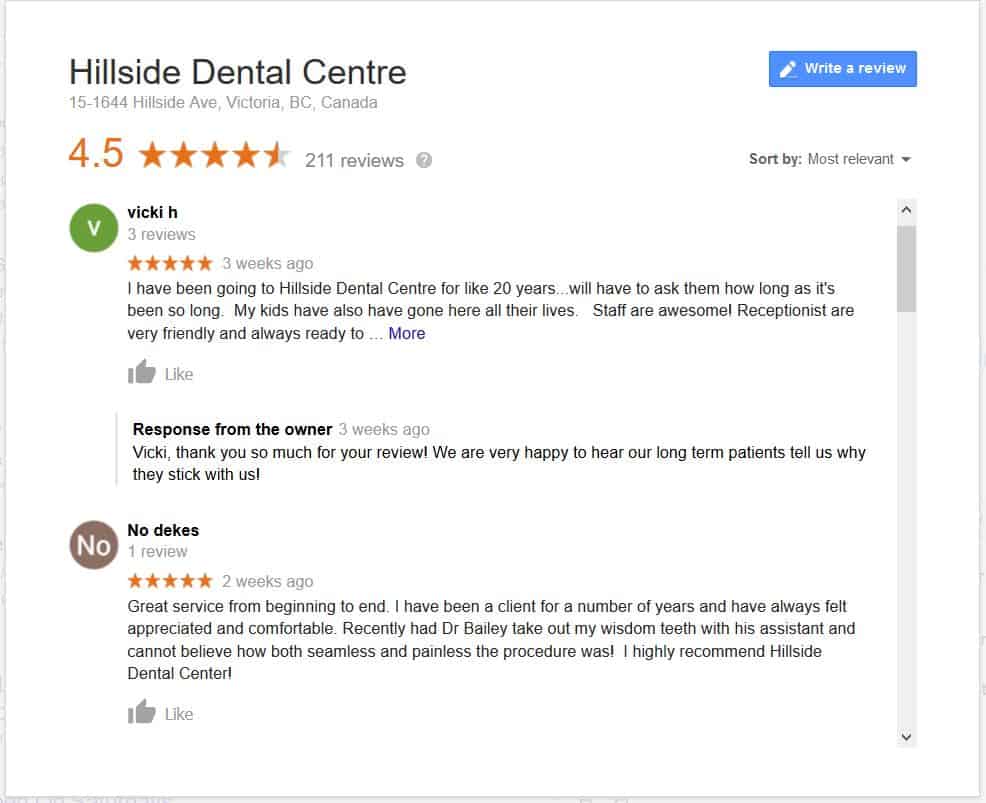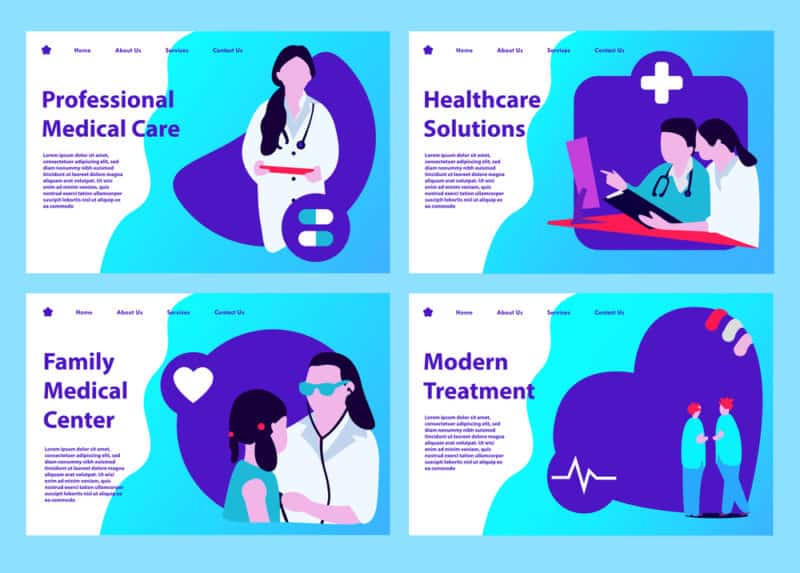What is your best medical marketing strategy for your doctor’s office?
As with many other industries, the healthcare sector has seen a lot of significant changes in recent years. Industry trends continue to shift to reflect the changing behaviors of patients and medical professionals alike.
Gone are the days when doctors would just focus on attending to patients’ needs and health concerns. Today, patients have evolved as savvier healthcare consumers who demand more from their healthcare providers. You cannot expect them to stick around without meeting their needs, such as convenience and easy communication, among others.
It’s important to run a doctor’s office or medical spa just like any serious business. Put your customers’ needs first while finding strategic ways to step up your marketing game. Given the competitive state of today’s healthcare industry, sticking to old ways of healthcare marketing is no longer sustainable.
There are several medical marketing principles that smart healthcare providers apply to their private practices. Check out these 10 actionable medical practice marketing tips:
#1 Delivering patient-centered care
Healthcare is a business, but it doesn’t mean patients’ needs come second to profit. To keep your doctor’s office thriving, you must prioritize giving patient-centered care before anything else.
So, what are the usual patient requirements you should seek to address?
According to a recent Forrester study, “38% of healthcare providers believe patients felt a strong need for quick and convenient service from their healthcare providers as a top priority. And as a second priority, 28% of providers believe patients want timely and ongoing communication regarding their health needs.”
No matter the patient’s stage in their healthcare journey, it’s important for your doctor’s office to offer support in a timely manner. Convenience is a must-have now, especially in this digital age where customers are more empowered to make decisions.
For instance, patients are no longer confined to traditional ways of receiving healthcare, e.g. waiting for weeks or months for a doctor’s appointment. With just a few clicks on their phone, they can easily find alternative providers that will promptly address their needs.
To ensure that you stay top-of-mind with your patients, your medical office should be flexible and able to keep up to meet their needs. Taking time to understand their problems and expectations and creating solutions will spell the difference between a regular and an excellent medical practice.
Why go the extra mile? Medical clinics that put patient care at the center of everything they do eventually enjoy rewards that go beyond financial benefits. These include enhanced brand reputation, long-term doctor-patient relationships, and overall customer satisfaction.
So if you’re in the healthcare sector, commit to delivering excellent care and success will follow.
RELATED: Get More Patients: Healthcare Marketing Strategies That Work
#2 Giving value to your doctor’s office staff
Delivering patient-centered care is vital but impossible to do without competent staff running your doctor’s office.
Successful businesses are operated by savvy leaders with engaged employees. In running a medical office, you should value not just the patients but also the workers who deal with them on a regular basis.
Working in the healthcare sector can be challenging and draining especially with the constant demands of consumers. A doctor’s office filled with worn out and grumbling staff leaves a negative impression on both new and existing patients. And any negative patient experience won’t help with your medical marketing efforts at all.
Therefore, it pays to ensure your team members’ well-being and give them the proper treatment they deserve. Find ways to maximize organizational efficiency while keeping the staff’s morale high.
Remember that when workers are happy, motivated and inspired, patients naturally feel it. And this positive experience can lead to patient loyalty and referral opportunities.
So, take care of your doctor’s office staff and they will take better care of your patients, too.
#3 Creating an optimized and user-friendly website
By now you must have set up a website to market your medical practice. After all, healthcare websites are an integral part of marketing for doctors.
But the question is, how effective is your medical practice website?
Not all websites are created equal. Just because you built one doesn’t mean new patients will quickly find you or engage your medical services. You have to consider other vital elements such as website design, SEO, mobile friendliness, and a lot more.
Just like how you exert efforts in promoting a positive environment for your staff and patients, you must invest in creating a great website experience for potential consumers.
Here are some ways to do this:
a.) Make your patient portal user-friendly. It’s not enough to create a patient portal along with your medical practice website. You should design it with your patients in mind.
Through the patient portal patients can view their medical history, make and check appointment schedules, and engage with your business. But despite the beneficial usage of these portals, studies reveal that “less than 20% of patients on average log in or use them,” according to Medical Economics.
So encourage users to access your patient portal by making it not only functional but also more personalized and user-friendly.
b.) Go for a professional looking layout and design. Because of its business nature, a medical website must look professional and neat. Yet, be careful not to make it bland or boring or else your site visitors will leave in seconds.
There are a number of website design principles to consider, such as contrasting color schemes and the placement of design elements. Avoid putting too many elements on your web pages so as not to distract site visitors. Breaking down blocks of content is also ideal for a positive user experience.
c.) Ensure the web pages load fast. Both Google and website visitors greatly care about a website’s speed or load time.
If you don’t want to lose rankings or annoy your site visitors, make sure your medical website loads within a few seconds (ideally 3-5 seconds). To do this, you should learn about the factors that affect your site speed and use the right tools to improve it.
d.) Make your website mobile-friendly. This is a necessity for any kind of site, including a medical practice website. Now that majority of internet users check out websites on their phones, you’ll be missing out by not optimizing yours for mobile.
If your goal is to attract more patients, then work on the mobile friendliness of your medical marketing website.
e.) Optimize the website for search engine rankings. What’s the use of an attractive and fast loading website if it cannot be found online?
Implementing the right SEO strategies is crucial to make your site competitive and searchable on search engines like Google. Learn more about using SEO for medical marketing below.
RELATED: The 5 Most Crucial Website Design Tips
#4 Implementing ethical, white hat SEO strategies
Just a quick Google search about the importance of SEO to businesses will give you countless results.
For one, search engine optimization is a tested and proven way to boost your website’s online visibility. It allows your doctor’s office to gain credibility among your existing patients as well as to attract more leads.
SEO is a great factor in enhancing your branding, which is an important goal of your medical marketing efforts. With a positive brand image, your medical practice stays top-of-mind with your consumers and gets you a step ahead of your local competitors.
So it’s essential to build a healthcare website that is optimized for top rankings on search engines, e.g., Google, Bing and Yahoo. But take note, not all SEO techniques are recommended to apply especially onto a professional medical website like yours.
This is where the difference between white hat SEO and black hat SEO comes in. You want your website to be found easily by current and potential patients through SEO, but not at the cost of getting penalized by Google over the long term.
Here are some examples of white hat SEO techniques you can implement for medical marketing:
- Keyword research and analysis
- Link building and guest posting
- Internal linking
- Publishing relevant, valuable and in-depth content
- Optimizing parts of web pages such as page title, subheadings, etc.
- Optimizing images with alt tags
- Technical SEO
SEO is a vast field that it’s not possible to cover most of the details here. What’s important is that you understand the basics of SEO and what it can do for your medical practice.
Then you can simply delegate the trickier aspects of SEO to a professional SEO and digital marketing company. It’s always worth it to build a long-term SEO strategy for your medical business with the guidance of veteran SEO specialists.
By working with an ethical SEO service provider, you don’t only save time, but you can also save yourself from huge problems down the road.
#5 Leveraging local SEO for your doctor’s office
Organic SEO shouldn’t be your only strategy when you want to outrank other healthcare providers in your local area. Instead, you must understand how local SEO works and learn effective ways to boost your rankings in local search engine results.
Why the need for local search engine optimization?
It’s because local SEO offers an excellent opportunity to enhance your web presence and increase your bottom line. By having your doctor’s office listing appear on top of the local search results, you will attract more patients in your target area, resulting in increased revenue.
For businesses that have physical addresses, it’s even more important to gain greater online exposure through local SEO. Make sure your business appears on the first page of search results when a user makes a localized search (e.g. “dental clinics near me” or “dental services Victoria BC).
Also, unlike organic SEO that mostly revolves around a website, local SEO can make a business rank even without a website.
This means if you’re operating a dental clinic, a medical spa or a regular doctor’s office, you can get your business listed on local business directories (e.g. Google My Business) with or without a website.
The bottom line is, local SEO gives you a competitive advantage over other healthcare providers in your city or locality. You want to get your brand in front of your target market regardless of where and how they search.
Successful doctor’s offices and medical spas know that implementing the right local SEO strategies can be time-consuming but worth every effort. Apart from generating leads, gaining success in local SEO can help your medical practice garner customer reviews and increase brand authority.
RELATED: What Is Local Search and Why Does It Matter?
#6 Increasing social media presence
Another key to running a successful doctor’s office is the strategic use of social media.
Using social media in healthcare is not a new concept. If anything, private practice businesses that don’t utilize social media are likely to get left behind. This is because social media is now considered a normal part of everyday life.
Many of today’s adults use social networks in finding and sharing health information. And it’s not just millennials. A 2015 study revealed that almost 90% of older social media users utilize popular sites like Facebook and Twitter to seek and share health information.
Given its clear benefits in healthcare, social media offers great business opportunities for doctors. Social media marketing is an effective way to gain credibility, build customer loyalty, attract new patients, and increase revenue.
Here are some ways your medical practice can use social media for branding and business growth:
- Create blogs, videos, infographics that provide health information to the general public
- Monitor discussions in your target communities on issues surrounding your medical field
- Identify misinformation and disseminate pertinent information
- Engage with other health professionals by commenting on social posts
- Engage with followers and existing and potential patients
Is it worth it for busy doctors to market themselves on social? Here’s what Dr. Tyeese L. Gaines, a physician and member of the American Medical Association, has to say:
“I know some physicians think they can get through their whole career and not deal with social media. And I don’t think it’s mandatory to be on social media to take care of patients. But it’s such an opportunity to broaden your reach as a physician.
“We have so much knowledge after going through our training. Why limit it to the 40 patients you see a day when you could be reaching thousands of patients a day on social media?”
RELATED: How to Create a Social Media Strategy for Your Brand
#7 Promoting patient reviews for your doctor’s office
Feedback in the form of patient reviews is crucial for private practice businesses. Successful medical offices know how to leverage feedback to modify their systems and improve services.
There are a few ways through which you can solicit feedback from your patients. For instance, in every patient visit you can ask them to fill out a form or a simple survey rating their experience. Review the data regularly and implement changes based on the overall feedback as needed.
Also, it would benefit you greatly to regularly check out online reviews about your private practice. Whether or not you encourage patients to leave reviews on your business listing or social pages doesn’t matter. Patients are now more empowered to leave honest feedback on their doctors and healthcare providers, so it’s in your best interest to be proactive about them.
Why should you care about internet reviews?
Based on data obtained through its surveys, Software Advice found that the number of people who check out online review sites to find a doctor continues to grow. This means private practices that don’t grow their online presence “could be missing out on hundreds of new patients each year.”
Positive online reviews matter a lot for doctors and their businesses. But it doesn’t mean you should disregard negative reviews. In their latest findings, Software Advice wrote:
“Seventy percent of respondents feel it’s ‘very’ or ‘moderately important’ for providers to respond publicly to online reviews, so addressing complaints head-on (without violating HIPAA laws) is a smart strategy.” (PIPEDA in Canada)
Learn more about dealing with negative reviews here.
RELATED: Local SEO for Dentists – Online Reviews
#8 Incorporating chatbots and automation
More and more businesses are incorporating chatbots into their digital marketing strategy. This isn’t surprising given the rapid changes in the digital landscape driven by a shift in customer behavior and preferences.
Unfortunately, the healthcare industry is making a slow progress in terms of automation. Medical practices that know how to leverage this marketing trend are expected to get ahead of the competition and effectively boost patient retention rates.
How do chatbots impact your medical practice business?
Chatbots and automation tools offer ways for you to communicate with customers quickly and in a more personalized way. It’s not always possible to cater to patients’ questions and concerns on a regular basis. Yet you cannot afford to ignore them or keep them waiting for long either, lest they find other providers that will address their needs.
In such cases, you can utilize chatbots for Facebook Messenger or on your business website. Automation allows you to provide great value to existing and potential patients by accommodating their concerns 24/7.
Whether patients want to schedule appointments, need expert opinion on their health issues, or are asking about your other services, chatbots can help you engage with them in a personal and timely manner. This translates to a positive customer experience which will further boost your brand reputation.
RELATED: Top Medical Marketing and Media Strategies for Healthcare Providers
#9 Marketing your doctor’s office through paid advertising
Smart doctors know how to strategically use paid ads in marketing their private practice.
Compared to other digital marketing strategies for doctors, paid advertising is not the go-to option among many healthcare providers. This is understandable as paid ads like PPC and Facebook ads are generally expensive.
But depending on your marketing goals, targeted online advertising makes for a valuable investment for your doctor office both in the short term and the long term.
Below are two popular examples of paid advertising:
Facebook ads
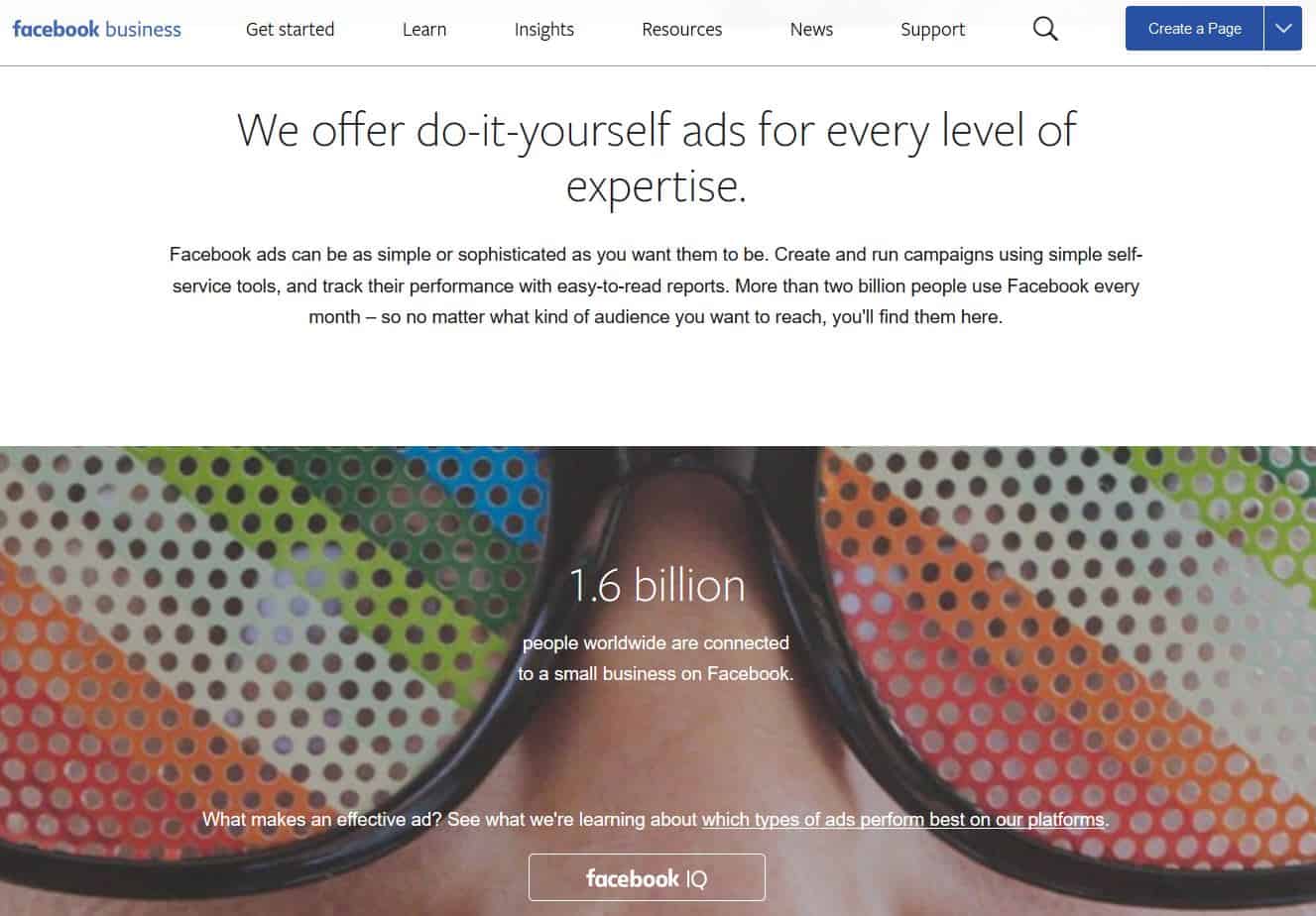
Many businesses today run Facebook ads for a reason. Facebook remains to be the most popular social network today, with 2 billion active users monthly. This means the social network is still a promising platform for businesses to find their target market.
In your case, running Facebook ads offers an effective way for you to boost your social media presence, grow your followers, and reach more potential patients. You can use Facebook insights to learn more about your audience and modify strategies to better meet your marketing goals.
PPC ads
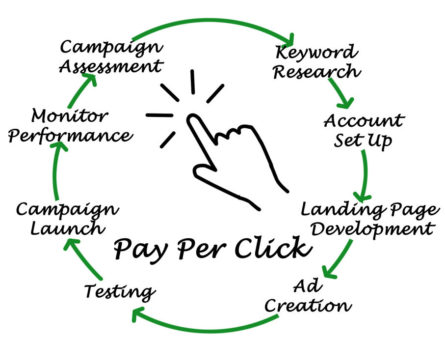
Through this paid advertising, you can effectively drive traffic to your website. It’s similar to how organic SEO works. You get your medical business in front of your target audience, increasing brand awareness and visibility. You can achieve a great ROI with a successful campaign.
Running PPC campaigns isn’t rocket science, but there are a number of things to consider. For example, you should know which keywords to use and how to run ads on different platforms like Google, Bing and social networks to ensure you get an ROI.
For this marketing strategy for your medical practice, it is recommended to work with PPC specialists who know the ins and outs of web marketing. From keyword research to monitoring results, professional PPC marketers will help ease the process and help you get the most out of your pay per click campaigns.
RELATED: 6 Ways to Develop Your Facebook Marketing Strategy in 2019
#10 Building authority with content marketing
Content marketing is another great marketing strategy that physicians and private clinics can utilize. Not just in the healthcare industry, but many businesses find that the best way to establish brand authority is by creating and sharing valuable content for their target market.
Interestingly, while content marketing has been a widely used strategy for many modern businesses, it’s not the same case for most healthcare practices today.
On the other hand, private medical firms that already employ the right content marketing techniques should have seen more success in terms of patient retention and sales than their competitors.
Remember that medical content marketing is not about just about quantity but quality. Health information is among the widely searched items by online users, but a lot of existing medical content can do more harm than good.
In fact, the search giant Google penalized a lot of healthcare websites in the latter part of 2018 for having less reliable content. The company updated its algorithm in a way that it now focuses on a website’s level of expertise, authority and trustworthiness (E.A.T).
This means you need to ensure every piece of medical content you publish contributes to improving your website’s hypothetical E.A.T. score.
What makes content marketing important to medical practices? Here’s some useful stats from a Pew Research Center study:
- 72% of internet users search for health info online
- 35% of American adults look up medical conditions online
- 77% of internet health searches begin at a search engine like Google
With an effective content marketing strategy, you can reach your target patients while building your authority as a thought leader in your medical field. At the same time, you will gain the favor of Google and other search engines and achieve better rankings.
RELATED: Content Marketing: How to Leverage Your Medical Practice
Conclusion
Marketing your doctor’s office through digital marketing can prove to be challenging and time-consuming. Yet, it’s the only way to keep your private practice thriving amid the ever-increasing competition in your field.
Therefore, take time to develop your digital marketing strategy and seek expert web marketers that will help you execute your plan.
Need help with online marketing for your private practice? Feel free to reach out to our team to discuss your website needs and marketing goals. From SEO and PPC to content marketing, StepForth Web Marketing will strive to meet your specific needs.
In addition, our sister company, First.Dentist Web Design & Marketing is 100% focused on marketing dental practices.
Give us a call or request for a one-time consultation with StepForth’s CEO, Ross Dunn. Similarly, you can book a free consult with First.Dentist for your dental marketing needs.





